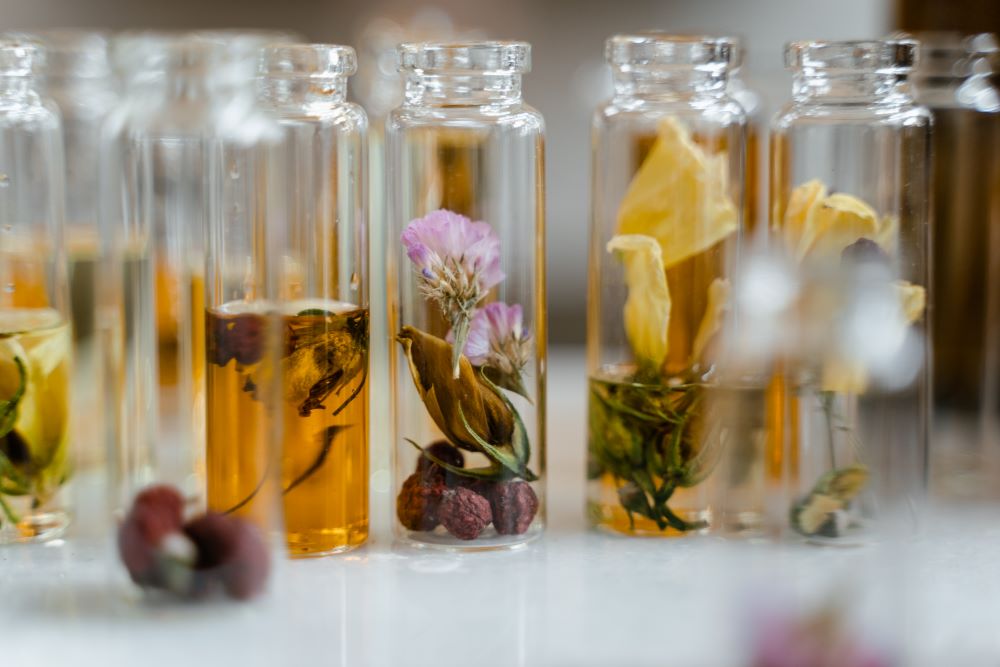Aromatherapy is the practice of using essential oils to promote physical and psychological well-being. Essential oils are highly concentrated plant extracts that have been used for centuries for their therapeutic properties. Aromatherapy can be used in a variety of ways, including inhalation, massage, and baths.
Benefits of Aromatherapy
Aromatherapy has many potential benefits for physical and psychological health. Some of the most commonly reported benefits of aromatherapy include:
- Stress and anxiety relief: Certain essential oils, such as lavender and chamomile, have been shown to reduce feelings of stress and anxiety.
- Improved sleep: Essential oils like lavender and bergamot have been shown to improve sleep quality and reduce insomnia.
- Pain relief: Essential oils like peppermint and eucalyptus have been shown to reduce pain and inflammation when applied topically.
- Improved digestion: Essential oils like ginger and peppermint have been shown to improve digestion and reduce symptoms of gastrointestinal disorders.
- Respiratory health: Essential oils like eucalyptus and tea tree oil have been shown to improve respiratory function and reduce symptoms of respiratory infections.
How Aromatherapy Works
Aromatherapy works by stimulating the olfactory system, which is responsible for our sense of smell. When we inhale essential oils, the molecules enter our nasal cavity and are detected by olfactory receptors. These receptors send signals to the brain, which can have a variety of effects on the body.
In addition to the olfactory system, essential oils can also be absorbed through the skin when used in massage or baths. When absorbed through the skin, essential oils can have a localized effect on the body.
How to Use Aromatherapy
There are several ways to use aromatherapy, including:
- Inhalation: Add a few drops of essential oil to a diffuser or bowl of hot water and inhale the steam.
- Massage: Mix a few drops of essential oil with a carrier oil, such as jojoba or coconut oil, and use as a massage oil.
- Bath: Add a few drops of essential oil to a warm bath.
- Topical application: Apply essential oil directly to the skin, either by itself or mixed with a carrier oil.
It’s important to note that essential oils are highly concentrated and should always be diluted before use. Some essential oils can also cause skin irritation or allergic reactions, so it’s important to test a small area of skin before using a new oil.
Popular Essential Oils
There are many different essential oils to choose from, each with its own unique properties and potential benefits. Some of the most popular essential oils include:
- Lavender: Known for its calming properties and ability to reduce stress and anxiety.
- Peppermint: Known for its cooling and invigorating effects, as well as its ability to reduce pain and inflammation.
- Eucalyptus: Known for its respiratory benefits and ability to reduce symptoms of respiratory infections.
- Tea tree: Known for its antibacterial and antifungal properties, as well as its ability to improve skin health.
- Lemon: Known for its uplifting and energizing effects, as well as its ability to improve digestion and boost the immune system.

Choosing the right essential oil will depend on the specific needs and preferences of the individual. Some essential oils can also be blended together for a synergistic effect.
Precautions and Risks
While aromatherapy is generally considered safe when used properly, there are some precautions and risks to be aware of. Essential oils should never be ingested, as they can be toxic when taken internally. Essential oils should also be kept out of reach of children and pets.
Some essential oils can cause skin irritation or allergic reactions in some individuals, so it’s important to test a small area of skin before using a new oil. Pregnant women, individuals with certain medical conditions, and those taking certain medications should also consult with a healthcare provider before using aromatherapy.
